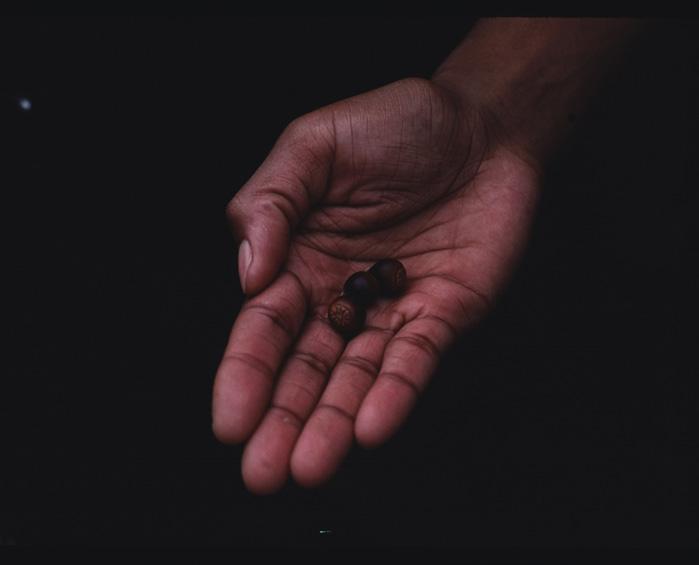
INSPIRED
BY
CHRISTINA SHARPE


INSPIRED
BY
CHRISTINA SHARPE
Cover: Black children play outside the Ida B. Wells Homes in Chicago.
Source: U.S. National Archives and Records Administration, 1972.
The Free Black Women’s Library Canon Zine Project is funded by Brooklyn Arts Council.
© 2025 WRITTEN BY MARIAME
KABA
DESIGNED BY CINDY LAU
Epitaph
“No offering is too small. No stone unneeded… all of us, without exception, are qualified to participate in the rescue of the world.”
- Julian Aguon, No Country for Eight-Spot Butterflies
“What are we doing here, and why are our hearts invisible?”
- Anne Carson, The Anthropology of Water
Hope is not found, we make and remake it by consistent conscious action.
Each & every day, hope is what we do. Hope is a Black woman in a space suit at the bus stop. Hope is dancing with the uncertainty of the future. Hope stubbornly considers all the “facts” and still insists, ‘I believe in us.’ [And a future].

Sy Klipschu-Abudu
If you give up hope, don’t give up trying.
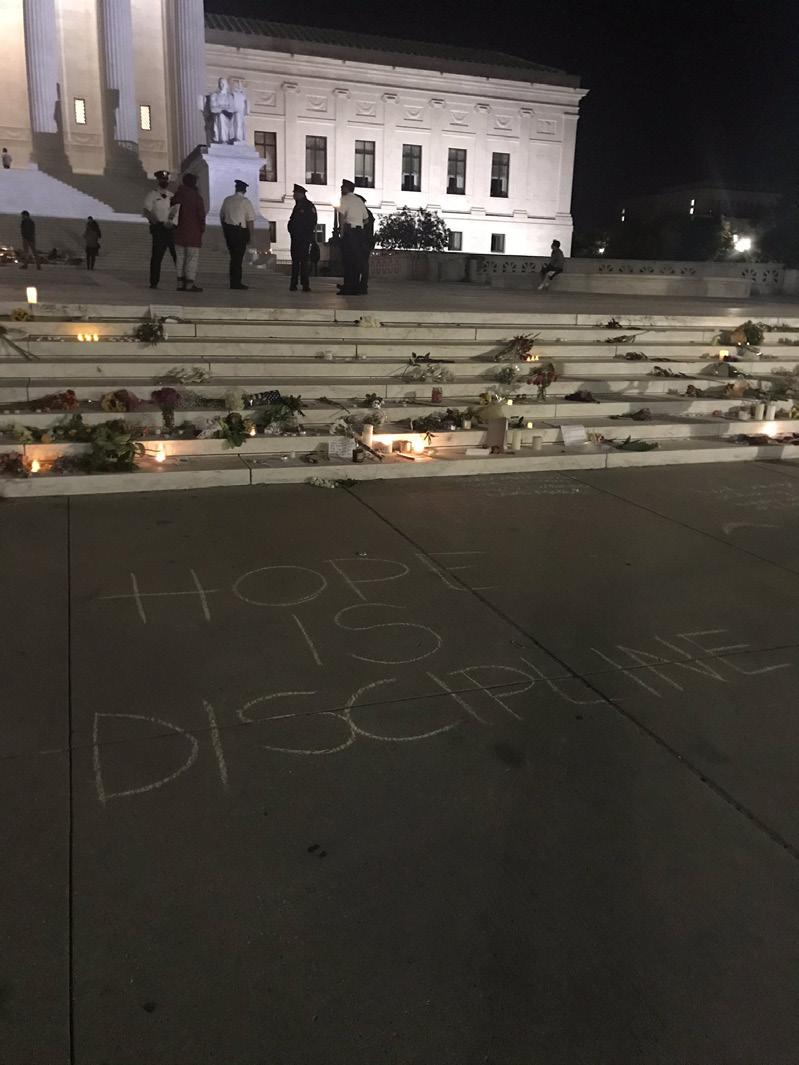
Meaningful relationships are the currency of a life well-lived.
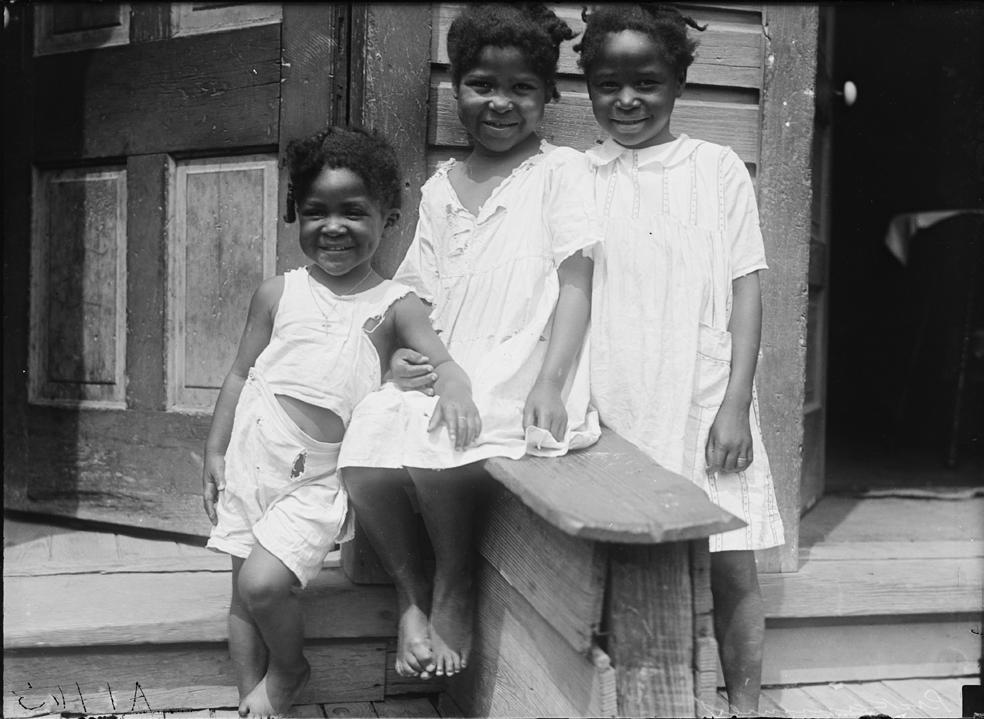
Library of Congress Harris and Ewing collection, 1955
NOTE 5 Connection
We are interdependent. This is both a balm and a torture. We share a bond with every living thing. People are hardwired for connection.

Care
Care is not egalitarian. Give what you can. Get what you need.

Marion Post Wolcott [photographer], 1939. Library of Congress
When I was a little girl, I used to get up early on Saturday mornings hoping that my father would bring me along on his weekly or biweekly trips to the Hunts Point Market in the Bronx. As the father of a bunch of kids, all who were constantly eating him out of house and home, my dad regularly purchased staples in bulk. At the Market, you could buy 5 gallon containers of Mazola corn oil, wholesale packages of evaporated milk, 24 cans of tomato paste, dozens of juice boxes, and more.
Then we would drive to 9th Avenue in Manhattan to the Meat Markets (with names like Esposito’s and Big Apple) to buy enough fresh fish, chicken and beef to last at least a week. During those long morning drives, I remember a little conversation. Perhaps he asked me about school or about the latest book I was reading. I don’t remember much except that he kept me company and that I felt safe. My dad, a heavy smoker, would roll down the window and light a cigarette. That was a courtesy in the late 1970s. He let me listen to whatever radio channel I wanted as we drove.
Only in his old age would my father actually say the words “I love you” to me. He would say them to alert me that he was ready to get off the phone, “love you” in a clipped voice. He tried, but it wasn’t natural for him. Yet I always felt his profound love for me. I knew it because love was a verb for my dad, regular actions. Those early morning Saturday excursions to shop for his family repeated →
countless times a year for many, many years were the embodiment of care and a simple demonstration of his love. This repetition of acts of care formed the basis of my dad’s life. These are the memories of him that have stayed with me, left their imprints on my life. Specificity is less important than the feeling and the memory.
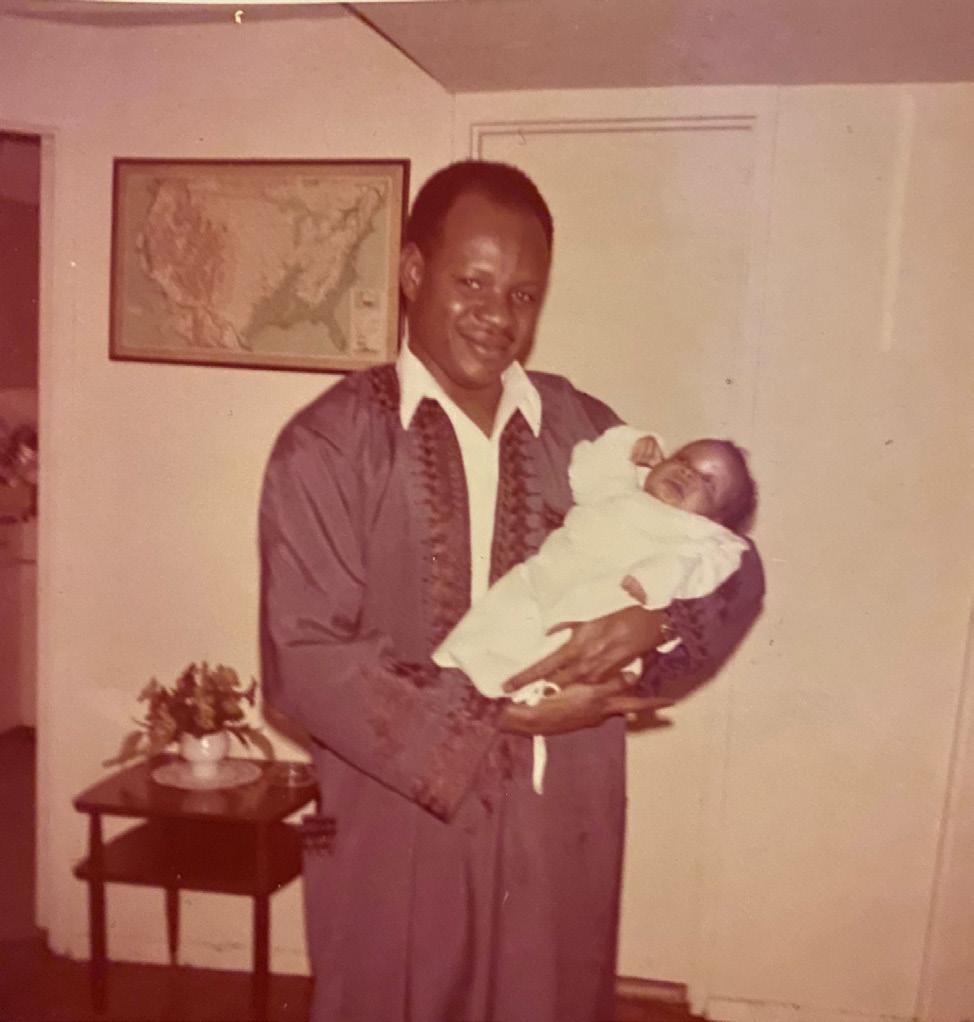
“Generous” is a word that I adore. I long for a bounty of kindness. My dad was a really giving person. After he passed away, we learned just how much. Testimony after testimony confirmed this. People we knew, and those we didn’t know, shared their stories. He gave freely from the goodness of his heart without any expectations. I aspire to this. May generosity make my heart a permanent dwelling place for kindness.

9
I’ve heard it said that ‘you don’t move on from grief, you go on and carry it with you’. That resonates with my experience of grief. This year I have been leaning into Chera Hammons’s words:
“Even when you think you can’t go on the day carries you”
If you are currently trying to process your grief, I hope that “the day carries you.”
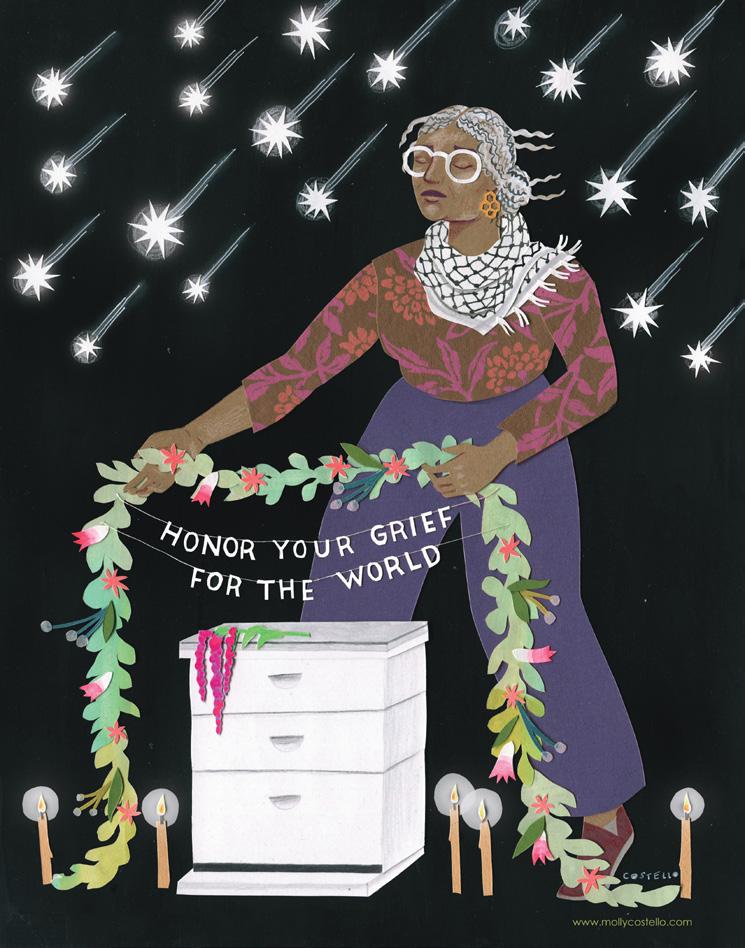
We live with presence by attending to seemingly little and insignificant things. The smile on a stranger on the bus’s face as they read a book; a leaf blowing in the wind, the sound of a baby gurgling. Hermann Heese said: “My advice to the person suffering from lack of time and from apathy is this: Seek out each day as many as possible of the small joys.”

A dance group performing at the Frederick Douglass Housing Project in Anacostia, Washington D.C. Library of Congress, 1942
You are not needed everywhere, but we are all needed somewhere. Find your somewhere and plant yourself there. Help your seeds grow there.

NOTE 12
Human beings will cling to the familiar even when the familiar is failing us.
NOTE 13
How might more humility get us closer to liberation?
As organizers, our work is to do at least 3 things. We have to help people understand what is (the current (shared) reality), we must collectively imagine what can be (imagination of a future possibility), and we have to diligently labor for what must be (organizing to sustain life/livingness and for liberation)
What is…
What can be… What must be…
Our world can be different. Let’s make it so.
In organizing, you lose much more than you win. The losses are sometimes devastating. You cannot retrieve the many hours spent planning, strategizing, communicating, and working. At times, you are so tired that you question whether any of it is worth it. You find yourself up against massively powerful forces and sometimes also fighting against people you consider to be friends. These fights can sometimes feel lonely, even when you’re surrounded by comrades.
If you’re seeking external validation, you usually won’t find it. Mostly, the public is indifferent at best or crushingly hostile at worst. Few laud/praise your disruptive tactics. In fact, people will probably criticize you roundly for blocking traffic or doorways and for trying to interrupt business as usual. The police are ever present.
After all of your efforts, if you don’t win, discouragement is a tame word for your feelings. I understand. I’ve been there many times over the years. But I also want to share different news about organizing losses you won’t know unless you’ve organized. Within losses, there are wins that may at first escape notice. It’s rare to be engaged in struggle and not come away with new knowledge and skills. Organizing campaigns are learning laboratories. You have to work across differences to relate to many different kinds of people. These are skills that will serve you well in all parts of your life.
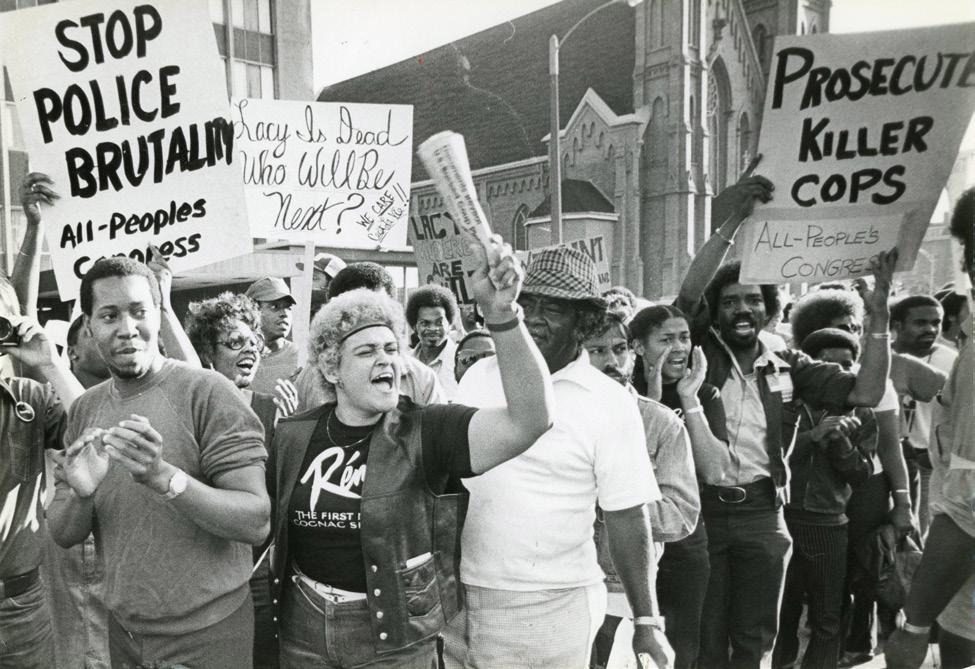
Knowing who to be mad at is praxis.
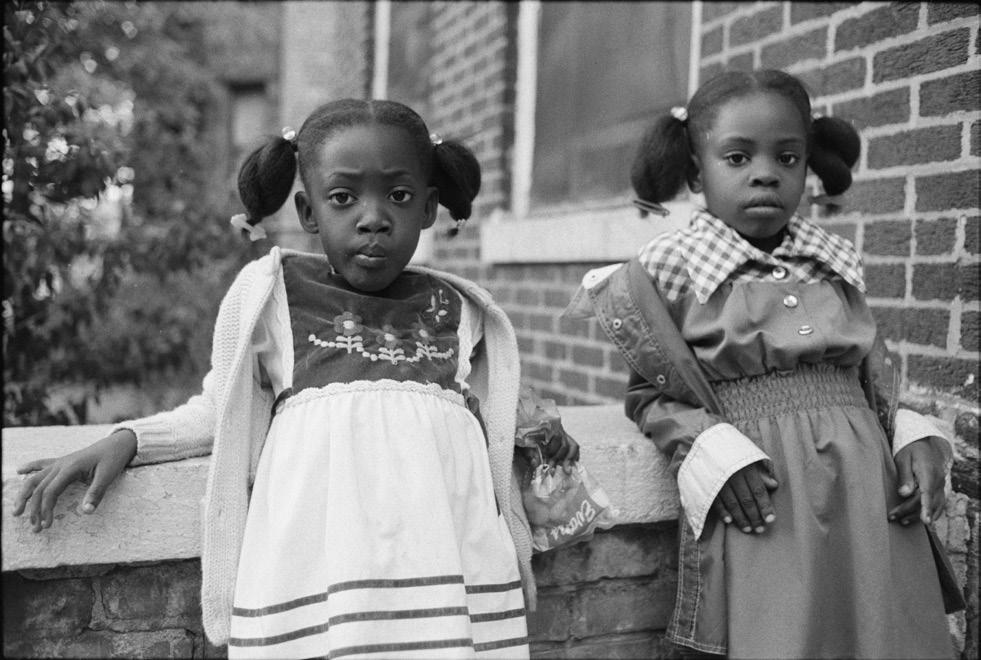
Library of Congress, 1977
We’ll figure it out by working to get there is praxis not evasion.
Abolitionists are the realists because we know the futility of reformists reforms and we’re also the dreamers staking out bold visions of justice and actual safety. We’re not afraid of seemingly *unanswerable* questions because they are only unanswerable until we come up with collective answers that serve us.
We’re dreaming AS WE pursue struggles to improve our material conditions — it’s not a bifurcated struggle. It’s BOTH/AND.
The wonderful organizer Harsha Walia asks a generative question that is foundational to my abolitionist praxis - “Is what we’re doing increasing the possibility of freedom?” I’d add ‘the possibility of freedom and liberation for everyone.’

“When
something can’t be fixed then the question is what do we build instead.”
- Mariame Kaba
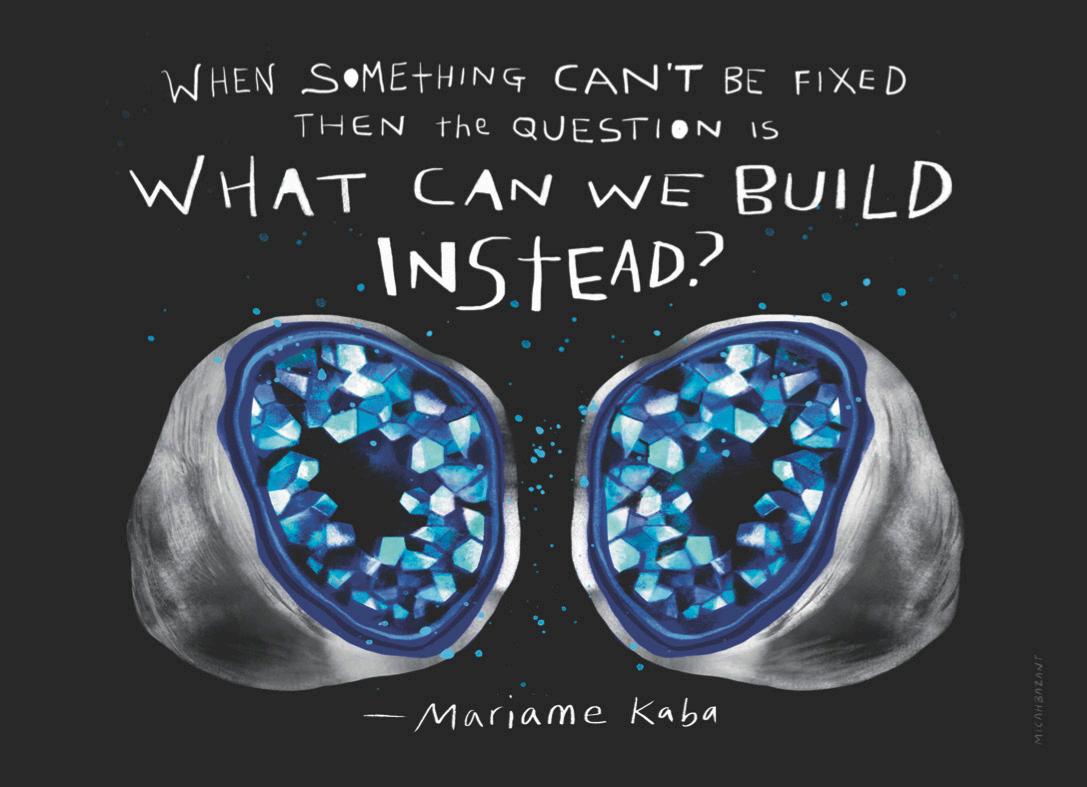
What is the nature of the harm?
What is your investment in the relationship?
What else is true?
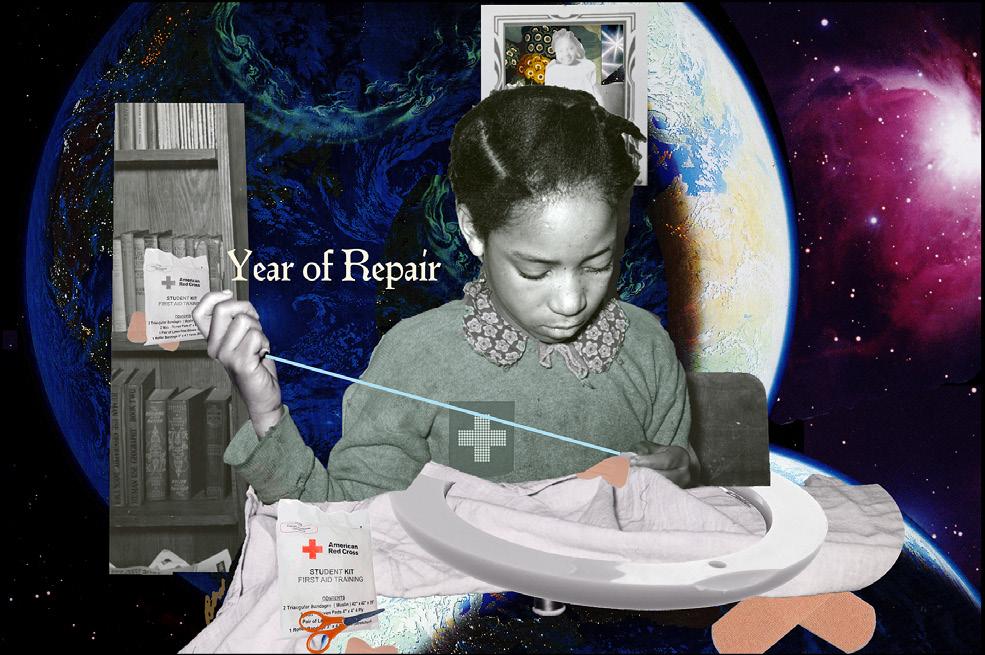
Mariame Kaba, 2024
If we transform human relationships so that we can envision and then create a more just world, What could we grow instead of punishment and suffering? We need imagination to create our responses.
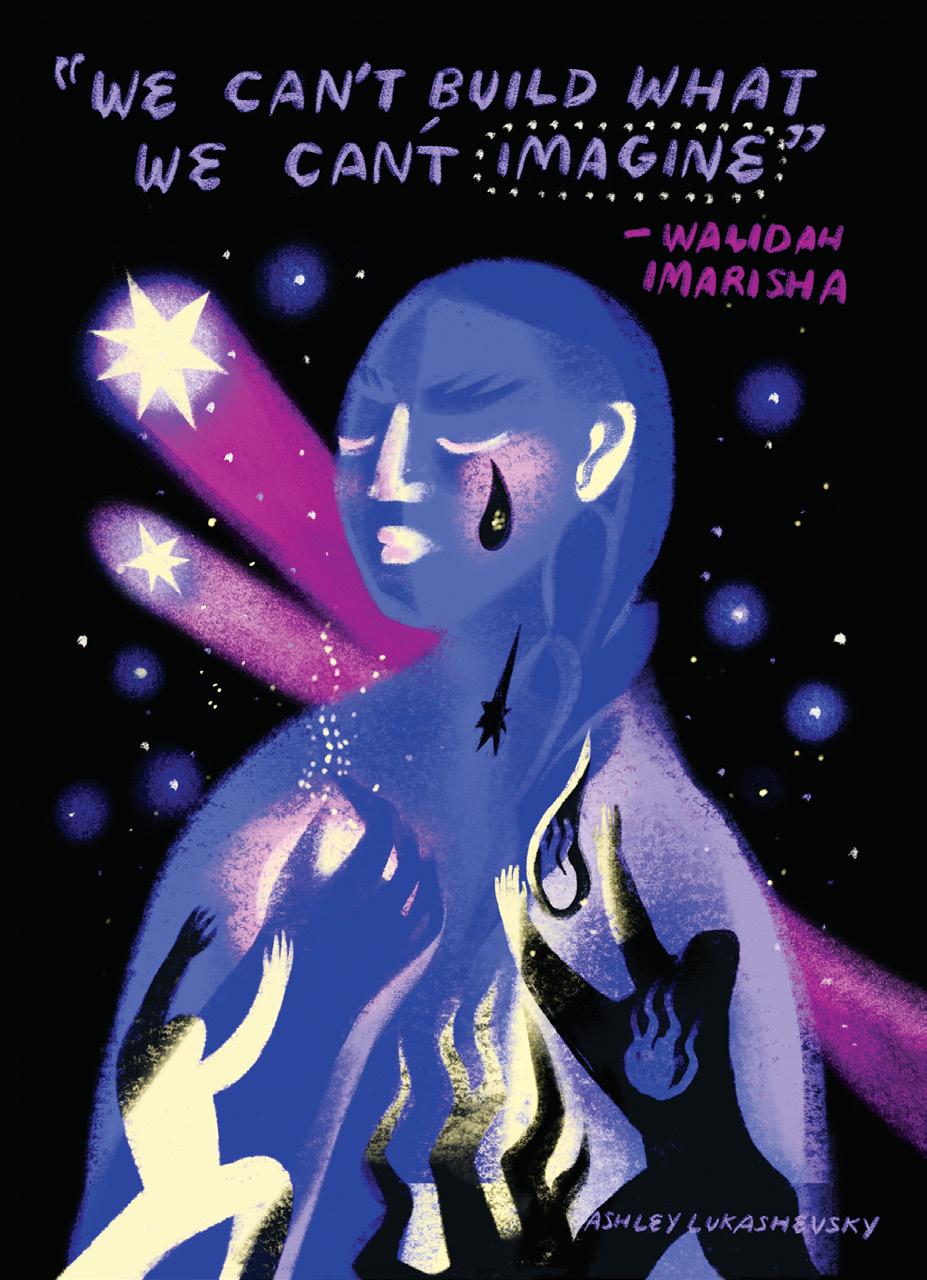
Ashley Lukashevsky
Public Library = “Public goods shared in common and distributed to everyone.” - Emily Drabinski
I love libraries. To be more specific, I love PUBLIC libraries.
I have felt this way since I was a child attending story hours at my local branch while my newly-arrived-in-the-US mama took free ESL classes. My mom always said that, through the public library, she was exposed to the best of what the US has produced. Every other institution that she encountered made her feel unwelcome. In the pediatrician’s waiting room or at the local bank, she was treated as an intruder. But at the library, my mom always felt welcome, and so did I.
To share my mother’s positive experience—and my own—is not to ignore that public libraries, like every other institution in this country, were originally built to exclude. There’s a children’s book that I’ve read with my niblings and Godchildren for many years. It’s called Richard Wright and the Library Card by William Miller. I’m sure that many of you know this book. It’s based on a story that the great American writer Richard Wright recounts in his semiautobiographical novel Black Boy. The story presents a conflict: Richard Wright wants to read. But his education only extended to the 9th grade and purchasing books was expensive. He discovered the public library but in Memphis, Black people couldn’t get a library card.
At his place of work, Richard befriends a white man named Jim Falk who is, like him, somewhat of an outcast in the office. →

Jim used to send Richard to the library to check out books for him. So Richard asked him for a favor: “I want to read books. I want to use the library, but I can’t get a card.” After asking him about the kinds of books that he wants to read, Jim agrees to lend him his library card and asks him not to tell anyone.
Richard heads to the library armed with a note he wrote saying that he was checking out books for Mr. Falk. The librarian is suspicious: “Why can’t Mr. Falk get his own books?” she asks.
“He’s very busy,” Richard nervously replies.
“All right, but you tell Mr. Falk, I'd rather see him in person next time.”
When Richard goes to check out the books he selected, the librarian asks in a loud voice: “Are you sure these books aren’t for you?
“No ma’am,” he says. “These books aren’t for me. Heck, I can’t even read.” The librarian and the patrons within earshot all laugh. She checked out the books though.
So I know that libraries—including public ones—do not exist outside of the oppressive contexts of any given time, including our own.
Having said all of this, I ultimately agree with Anne Lamott that “A free public library is a revolutionary notion.”
A few years ago, I led a workshop for high school students on the criminalization of Black people. Reading the words of Robert Black, a Black prisoner negotiating the end of a jail rebellion in the Tombs in New York City in October 1970, served as a jumping off point. Robert Black was speaking with a reporter.
Q: What is your name?
A: I am a revolutionary.
Q: What are you charged with?
A: I was born black.
Q: How long have you been in?
A: I’ve had troubles since the day I was born.
What kind of a lesson could be fashioned simply based on this exchange? What generative questions might students craft?
What does Black mean when he describes himself as a “revolutionary?” What defines a revolutionary? What does he mean when responds to the question ‘What are you charged with?’ that he was born Black. How is blackness criminalized in the US? What does it mean that he’s had troubles since the day he was born? What might those troubles have been?
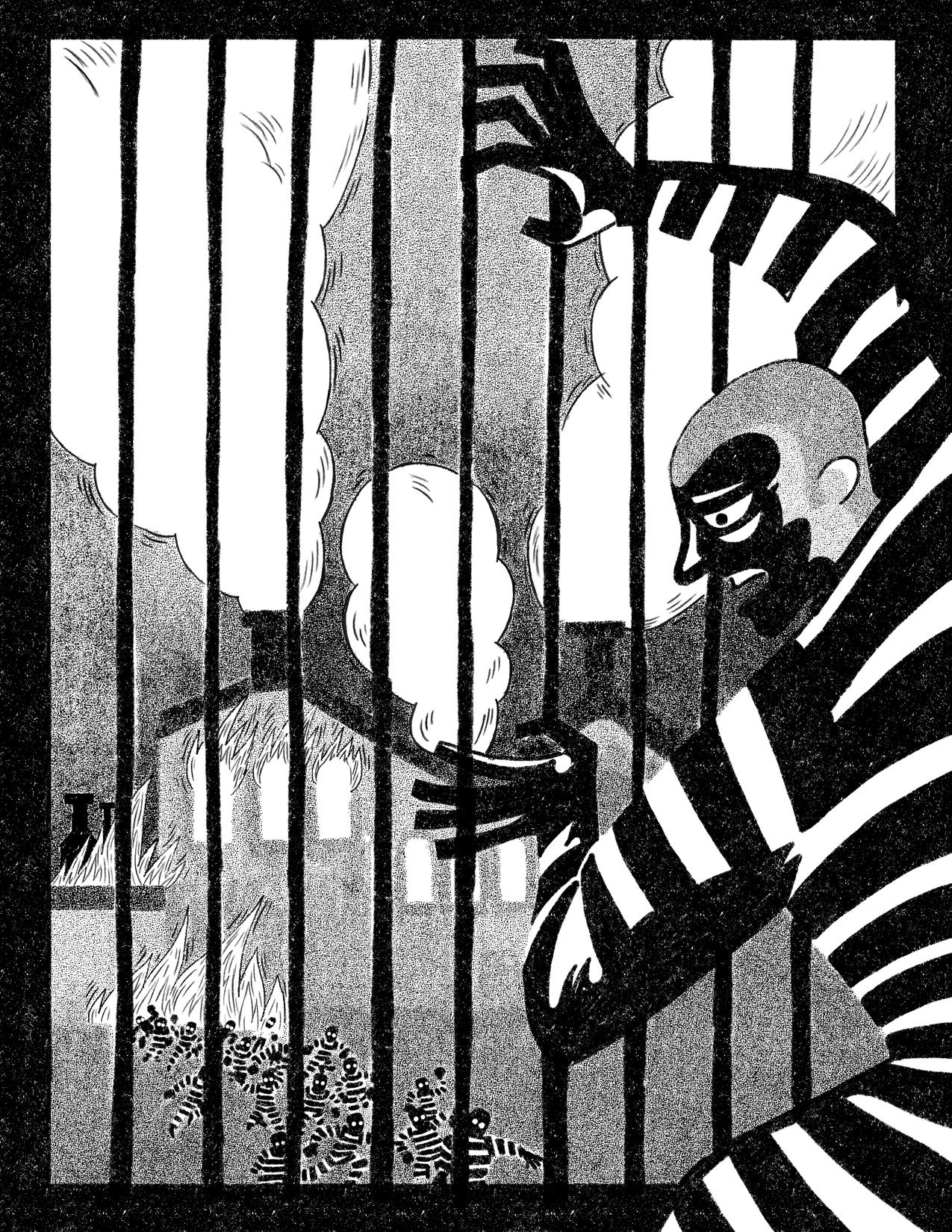
“We counted up all the deaths; we counted up all the dying; we counted up all the terrible things in life, and guess what? There’s still Van Gogh painting sunflowers, there’s still morning glories. There’s an excess in the universe, a much-ness, a too-much-ness.”
– Li Young
“If you find your imagination cannot stop itself from churning out the scripts of the Death Machines, pull its plug. Dismantle it. Reprogram it. Dream Daylight. Manufacture Daylight. We are the Magicians Make Magic.”
– Krista Franklin
I’ve been a zine maker since I was a teenager. And that practice has continued into my late middle age. With modifications, of course. Whereas I used to create zines using photocopiers, glue and scissors at my dad’s office, I have moved on to collaborating with artists and designers to create beautiful and I hope engaging publications which some people consider to be maybe more art book than zine now. But I hold on to a zinester spirit in the work. And I have also always been a pamphleteer, too, so I continue with that tradition. When Ola asked me to contribute to The Free Black Women’s Library Canon Zine Project, I immediately knew that I would choose Christina Sharpe’s Ordinary Notes (2023) as my inspiration. Ordinary Notes is a book that lingers. It’s a book to read slowly while returning to particular sentences. It takes a lot of work and talent to make something read effortlessly. Christina has a lot of talent and she cares about language and about people. This comes through in Ordinary Notes. She writes in Note 234: “Care is complicated, gendered, misused. It is often mobilized to enact violence, not assuage it, yet I cannot surrender it.” These words make me feel seen: a mantra. I didn’t hesitate to select Christina as my thought-partner and guide for this project. I hope no one compares my zine to Christina’s masterful work. There is no comparison. My humble offering shares fragments of ideas that are important to me. I’m grateful to Christina for the inspiration and to Ola for the invitation.
Mariame Kaba is an organizer, educator, librarian/archivist, and prison industrial complex (PIC) abolitionist who is active in movements for racial, gender, and transformative justice. Kaba co-leads Interrupting Criminalization, an organization she co-founded with Andrea Ritchie in 2018. She is the author of the New York Times Bestseller We Do This ‘Til We Free Us: Abolitionist Organizing and Transforming Justice (Haymarket Books, 2021) & most recently the National Bestseller Let This Radicalize You: Organizing and the Revolution of Reciprocal Care with Kelly Hayes (Haymarket, 2023) among several other books that offer support and tools for repair, transformation, and moving toward a future without incarceration and policing.
